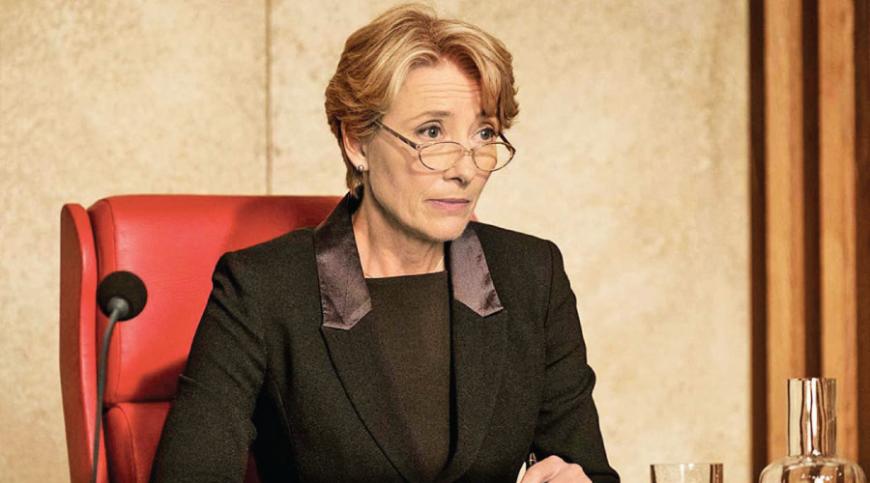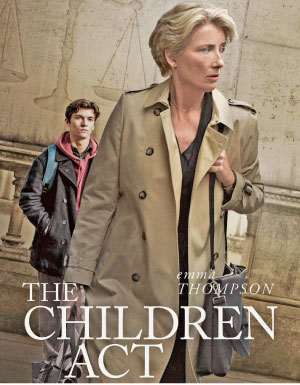
The 2017 film The Children Act is directed by Richard Eyre and the screenplay is by Ian McEwan. It is based on McEwan’s bestselling novel of the same name. It stars Emma Thompson as Fiona Maye, Stanley Tucci as Jack Maye and Fionn Whitehead as Adam Henry.
The film begins with a depiction of British High Court Judge Fiona Maye working late into the night on a case regarding separating conjoined twins. Fiona is very dedicated to her job and as a result her marriage to Jack has suffered because she does not have time for him. Jack tries to save their marriage but Fiona is unresponsive. Jack is lonely and endures the difficult situation but his patience runs out and he informs Fiona that he wishes to leave their marriage and have an extramarital affair with a female colleague. Jack tells Fiona that he wants to be honest with her and that he will always love her but the lack of emotional and physical intimacy has rendered their marital relationship meaningless. Jack leaves and Fiona reacts by changing the lock on her front door and filing for divorce.
Meanwhile, Fiona is asked to preside over a case involving a terminally ill seventeen year old boy Adam who is refusing to have a blood transfusion which he requires, because according to the law a child who is under the age of eighteen years is not allowed to make that decision. Fiona who is childless makes an unconventional visit to Adam in hospital to find out for herself the reason why he is refusing and she finds a clever teenager with an interest in poetry and music. Fiona orders the court to grant the hospital permission to give Adam the blood transfusion in order to save his life. Adam recovers from his illness but develops an unhealthy obsession with Fiona and starts sending her letters, text messages and stalking her. Fiona tells Adam that he was just another case for her but he goes to the extent of following her to Newcastle, after she has told him not to contact her or to stalk her. Adam relapses and this time he is legally old enough to make the decision.
Ian McEwan explains his inspiration for The Children Act in an essay he wrote for The Guardian, "Some years ago I found myself at dinner with a handful of judges – a bench is the collective noun. They were talking, and I was politely resisting the urge to take notes...How easily, I thought at the time, this bench could be mistaken for a group of novelists discussing each other's work, reserving harsher strictures for those foolish enough to be absent. At one point, our host, Sir Alan Ward, an appeal court judge, wanting to settle some mild disagreement, got up and reached from a shelf a bound volume of his own judgments. An hour later, when we had left the table for coffee, that book lay open on my lap. It was the prose that struck me first. Clean, precise, delicious. Serious, of course, compassionate at points, but lurking within its intelligence was something like humour, or wit, derived perhaps from its godly distance, which in turn reminded me of a novelist's omniscience."
The film explores the difficult personal and professional decisions Fiona makes in her daily life and the empathy and sensitivity with which she makes these decisions. The film captures the subtle nuances of court judgements, and Emma Thompson gives a powerful performance as Judge Fiona Maye who maintains her professionalism even when she is suffering inner turmoil.
